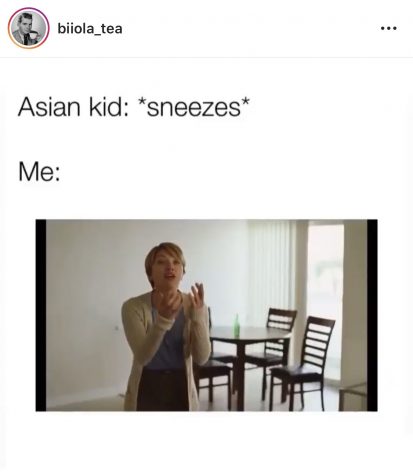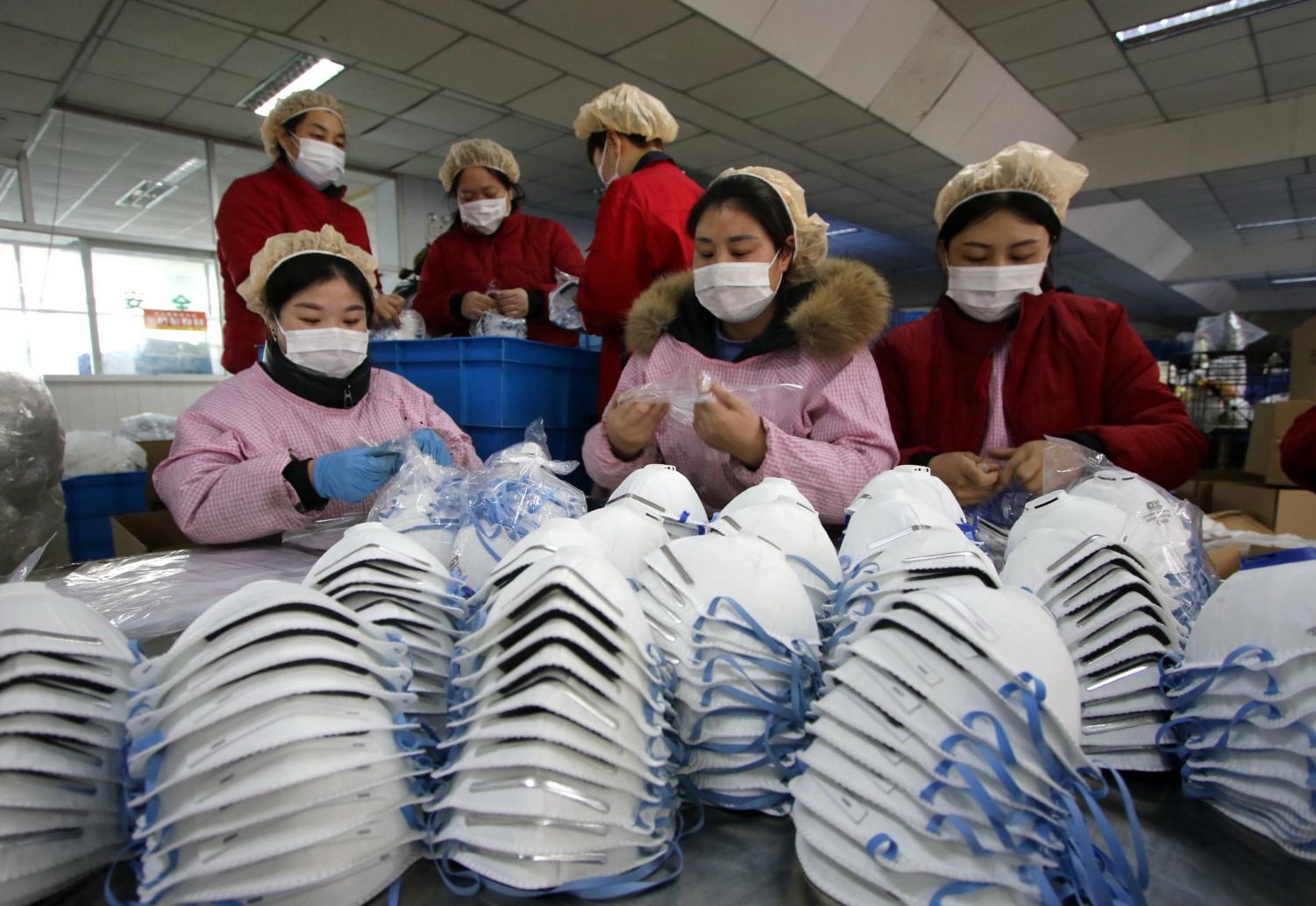Last week, freshman intercultural studies major Ruthie Montesines woke up and scrolled through Instagram before starting her day. Her thumb stopped on a post by a now-deleted unofficial Biola confessions account, @biiola_tea, which read, “Asian Kid: Sneezes” paired with a gif of a disgusted Scarlett Johansson. The post carried sarcasm and slightly offensive humor—typical traits of meme culture. However, this time it poked fun at a race.
The post put focus on East Asians because the novel coronavirus is believed to have first been diagnosed in the Chinese city of Wuhan this past December. @biiola_tea’s insensitive joke is just one example of the racist attitude against Chinese people that has followed the outbreak of the new disease.

A NEW STEREOTYPE
On Dec. 31, Wuhan’s health department reported the outbreak of a new disease called the novel coronavirus in the city of Wuhan. Since the first confirmed case, the virus has killed more than 200 people and sickened more than 7,700. The virus has appeared in multiple other countries, including Japan, France and the United States.
In California, cases of the virus have also turned up in San Francisco and even closer, Irvine. However, there are only 11 confirmed cases in the United States, with five of them being in California. Of those five, only two were in Southern California. With news of the virus within driving distance of Biola, students have begun to make jokes about the sickness and the race associated with it and those subtle jabs toward Biola’s Asian population have become harder to rein in.
Yes, the coronavirus is believed to have originated in Wuhan, China. However, though some international Biola students may be from China, as with all diseases, anyone is susceptible to coronavirus.
Racist remarks related to the coronavirus are not distant they happen in the “Biola bubble” too. I have been told to “put on a mask” by a person judging me solely based on my appearance.
OLD HABITS DIE HARD
While it is understandable that some take precautions due to fear of catching the virus, other actions point to racial and ethnic profiling. Grouping people who have monolid eyes or resemble Asian descent is both wrong and hurtful. It also reveals Western culture’s habit of pooling people of Asian descent into the same ethnicity.
Viral diseases have a track record of creating racial discourse that places blame on victim populations. The intentional spread of frightening or exaggerated rumors in order to arouse public fear happened during the Ebola crisis of 2014 and the spread of Swine Flu in 2009. When Ebola appeared in the Democratic Republic of Congo in 1976, people showed signs of fear toward people of darker complexions. BBC thoroughly recaps the subtle signs of discrimination that were shown against people of black heritage. As history repeats itself, it is more vital than ever to draw the line between a disease and a people group, precautionary versus discriminatory behaviors.
The outbreak has led to the re-emergence of stereotypes that Chinese people are unhygienic or uncivilized. The Atlantic summarizes this well in an article related to xenophobia by saying, “The more vulnerable we feel to disease, the more likely we are to want to build a proverbial wall.”
Scientists think the novel coronavirus originated in bats and spread in Chinese markets that sell livestock. The New York Times wrote that Chinese markets “are fixtures in scores of Chinese cities, and now, for at least the second time in two decades, they are the sources of an epidemic that has spread fear.” The problem is that people are conflating these facts with other stereotypes about Chinese culture. Since the announcement of the disease, a video from 2016 of a Chinese woman eating bat soup went viral and sparked headlines such as, “Coronavirus outbreak linked to bat soup sold at Wuhan market,” by the Daily Mail. From there, the internet exploded with remarks contributing to the stereotype that Chinese people eat dogs, or in this case, anything that moves under the hashtag “#BatSoup.”
#LatestComments
If anything moves, the #Chinese will eat it – including #BatSoup. pic.twitter.com/G67mhSlvlI— London Int. Post (@ldnintpost) January 31, 2020
IMPORTANT DISTINCTIONS
While unregulated meat markets may be a general threat to humans, the focus on Chinese food handling practices has been disproportionate. Factory farming in general increases the risk that humans will catch viruses from animals—but this can happen in virtually any country. Vice points out that mad cow disease started this way in the United Kingdom and the New York Times didn’t cover it in the same way as novel coronavirus.
Asians comprise over a billion of the world’s population. There lies a vast range of cultures, ethnicities and languages. Not all Asians are Chinese, and not all Chinese have been infected with the coronavirus. Biases and thoughts have consequences and those consequences can hurt someone, even if you may not realize it.
Diseases make people more xenophobic, possibly because the root of racism is fear. Mix that together with a dose fake news and a pinch of racial stereotyping and you’ve got yourself a recipe for things like #BatSoup or posts like @Biiola_tea’s. Disease transcends borders and while we can’t control the coronavirus we can control the spread of racism.








